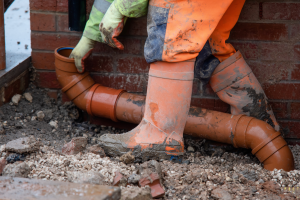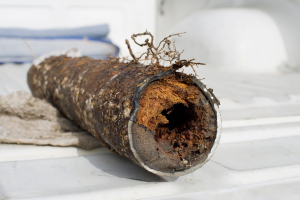What Causes Clogged Drains? Common Reasons and How to Prevent Them
Clogged drains are a common household issue, but they can quickly escalate from minor inconveniences to costly repairs if not addressed promptly. Whether it’s a slow-draining sink, a backed-up shower, or water pooling around a basement drain, clogs often signal a deeper issue in your plumbing system.
Understanding what causes clogged drains can help you prevent future blockages and maintain a healthier, more efficient plumbing setup.
1. Hair Accumulation
Hair is one of the top culprits behind clogs in bathroom sinks, showers, and tub drains. It easily binds with soap scum, shampoo residue, and skin oils, forming thick mats that get stuck in the drainpipe. Over time, even small amounts of hair can collectand restrict water flow.
Install mesh drain screens in the shower and regularly remove trapped hair. Avoid rinsing large amounts of loose hair down the sink after shaving or brushing.
2. Grease, Fat, and Oil
In kitchen drains, grease and cooking oil are silent cloggers. These substances might go down the drain as hot liquids, but they harden as they cool, coating the inside of your pipes and attracting food particles and debris. Over time, this sticky buildup can form a serious blockage.
Always pour used grease into a heatproof container, let it harden, and dispose of it in the trash. Wipe oiled pans with paper towels before washing them.

3. Soap Scum and Residue
Soap isn’t as innocent as it seems. Many bar soaps contain fats that combine with hard water minerals to form soap scum. This residue builds up on pipe walls and catches hair and dirt, forming dense obstructions over time.
Use liquid soap or body wash, which is less likely to cause buildup. Installing a water softener can also lower mineral accumulation.
4. Food Scraps
Even if you have a garbage removal, not all food waste belongs in the sink. Starchy foods like rice, pasta, and potato peels can swell with water, while fibrous foods like celery or corn husks can wrap around disposal blades or clog pipes. Coffee grounds and eggshells are also common offenders.
Remove excess food before rinsing dishes. Use your disposal sparingly and always flush it with plenty of water.
5. Foreign Objects and Improper Waste
Drains are designed to handle specific materials. Flushing items like wipes (even “flushable” ones), feminine hygiene products, cotton balls, floss, or small toys can lead to significant blockages. These items like toilet paper and can quickly clog pipes or even damage your sewage system.
Educate household members, especially kids, about what not to flush. Keep a waste bin near the toilet for non-flushable items.
6. Tree Root Intrusion
Tree roots are a hidden but serious cause of clogs, especially in older homes with aging sewer lines. Roots naturally seek moisture and can penetrate even small cracks in underground pipes. Once inside, they expand, block water flow, and can break the pipe over time.
7. Mineral and Scale Buildup
Hard water contains high levels of magnesium, which leave behind mineral deposits inside pipes. These deposits, also known as scale, slowly build up and narrow the interior diameter of the pipe, reducing flow and increasing the risk of clogs.
Consider installing a whole-house water softener to lower mineral levels. Periodic pipe descaling may be needed in areas with hard water.

8. Aging or Poorly Installed Pipes
Plumbing systems that are outdated or improperly installed can make clogs more likely. Sagging sections of pipe, sharp bends, low-quality materials, or incorrect slopes can all create areas where debris collects or water doesn’t flow smoothly.
A professional inspection can identify problem areas in your system. If you live in an older home, modernizing your pipes could prevent recurring issues.
How to Prevent Clogs Before They Start
While some clogs are inevitable over time, many can be prevented with good habits and regular maintenance:
- Use strainers in all sinks and tubs
- Don’t pour grease or food waste down the drain.
- Run hot water regularly to flush the kitchen drains.
- Clean your stoppers and screens weekly.
- Only flush human waste and toilet paper.
- Avoid chemical drain cleaners; they can damage pipes over time.
- Professional drain cleaning every year or two.
- Consider a camera inspection if clogs are persistent.
Final Thoughts
Clogged drains can be caused by a wide variety of issues, from the visible (hair and grease) to the hidden (tree roots or mineral buildup). Understanding the most common causes allows you to take proactive steps to reduce the likelihood of clogs and the damage they can cause. Whether it’s installing drain screens, disposing of grease properly, or scheduling a professional inspection, small changes can lead to a big difference in your plumbing’s performance.
Also Read:
